Curious Reads: Dethroning the Queen of Purity Culture?
Elisabeth Elliot's disturbing third marriage... and why I wrote about it.
Hello friend, Liz here.
#1 Today’s top of the fold story is Elisabeth Elliot—that is, I wrote an essay that caught fire about the queen of purity culture and her disturbing third marriage.
I’ve never featured my own writing as a conversation topic before… but I want to give you the backstory of the review of two recent Elliot biographies that I published in the Revealer this week.
Read “Elisabeth Elliot, Flawed Queen of Purity Culture, and Her Disturbing Third Marriage” at the Revealer by Liz Charlotte Grant
The Highlights:
Elisabeth Elliot became famous in the 1950s after her husband, Jim, died in his twenties trying to share Christianity with an unreached indigenous tribe in the jungles of Ecuador. She and the stories of her husband and other missionaries killed made headlines everywhere, including Time Magazine.
The widows of the other missionaries killed in Ecuador made Elliot their spokesperson to the press. That launched Elliot into the world of writing and speaking, both in the church and beyond it. (She shared a literary agent with Robert Frost and Madeleine L’Engle for years.)
In fact, the essay I wrote wrestles with the person she became—Jim’s widow—particularly her single years before remarrying compared to the person she became after her second marriage to Addison Leitch (and then her third marriage to Lars Gren).
Because, to my surprise, she and I (progressive feminist egalitarian Christian) would have gotten along swimmingly if she had remained the woman she was in her thirties throughout the rest of her life. In her 30s, she moved amongst the New York City literati. She conversed curiously with Christian feminists. She supported a nuanced position on Israel and Gaza, defying the conservatives of her day who were, as now, staunch supporters of Israel and not Palestinians. She even authored a controversial novel, No Graven Image, that skewered American evangelicalism’s romanticized view of missionaries.1
Yet over the course of two more marriages and a 5-decade-long career in Christian publishing, she became an icon of traditionalist marriage roles and evangelical purity culture.
So, how did she become the queen of purity culture? And why? What changed her mind?
TLDR: her 2nd and 3rd marriages made Elisabeth Elliot into that woman.
In particular, her last marriage shaped her profoundly; her third marriage is the reason I wrote this essay at all. When I first read about it in Austen’s biography, I was so disturbed that I picked up the only other Elliot biography. Both offered the same picture and confirmed the authoritarianism of Elliot’s third marriage.
By the way, the two biographies I consulted about Elliot’s later life are Lucy S. R. Austen’s Elisabeth Elliot: A Life and Ellen Vaughn’s Being Elisabeth Elliot (part two of a series of Vaughn biographies). These are the only histories of Elliot’s later life.
However, I prefer to let you read the details of Elliot’s third marriage for yourself rather than tell you what to think. You can decide for yourself whether my conclusion about her theology and lived experience is a reasonable one. In fact, you can weigh whether you’d like to live in a marriage like hers, and how the reality of her third marriage might change how we interpret her teachings today.
However, I want to address one additional question—that is, why did I write this?
Was I trying to soil the memory of a beloved evangelical matriarch? Did I have some other nefarious end? Am I just a “grifter” using a rumor to gain readers for myself?
Ummm, no to all. ;-)
Actually, grief and anger compelled me to write this essay.
I wept for myself and my own stories of family dysfunction. I wept for the other women I know whose lives have been crushed by the weight of male expectation and abuse (like my dear grandmother). And I wept for Elliot, a unique and original soul whose light seemed to extinguish the older she got.
I also felt angry because Elliot’s story illustrated the way that women have habitually been undermined, dismissed, denigrated, and used throughout the history of Christianity in order to bolster the power and egos of men.
I do not mean this specifically. What I mean is that the system we call Christianity has, through the centuries, made a habit of using women and discarding them. Why? Because male Christian leaders have decided that the image of God manifests most purely through men. The female form is a derivation, a deformation of the ideal, a faulted representation. And white American evangelicalism is the current greatest offender of this misogyny in my experience.
This line I wrote continues to make me feel something when I return to it:
White American evangelicalism needed a symbol, a meek female voice seated at the patriarch’s table — and Elliot complied.
I have heard pushback on that word “meek.” I understand why, as Elliot was not one to hold her punches. Yet I believe that’s a characteristic Elliot would have aspired to. “The meek inherit the Earth,” after all. She was deeply private and barely mentioned her own marriage to those closest to her. And her express aim was submissiveness above all else.
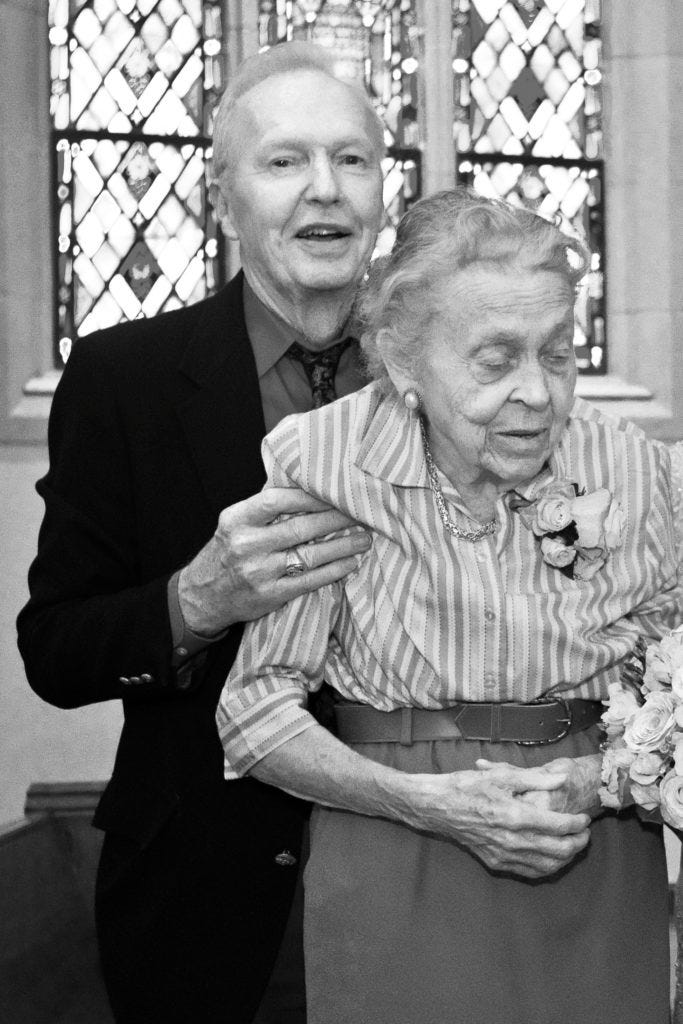
I’d like us to consider Elliot’s story closely. Because her story in evangelicalism closely mirrors the story of so many strong evangelical women.
How many of us women have received the same false invitation to pull up a seat at the table?
Some of us have refused to sit outright and we have been bullied for it simply because the males who’d extended the invitation are unused to such rejections. Other women have sat only to have the chair yanked away the second we ventured to speak our minds. (And then we were ostracized.) The women who were allowed to stay at the table necessarily gave up part of themselves, censoring their own voices. In so doing, they agreed with the groupthink that told them they mattered less and that they’d only be valued by parroting the party line.
Of course, this is utterly false. If God can love the one who hates God, the one who considers God her enemy (i.e., the gospel), then God can equally love the woman who is seeking to love and honor God—even if she gets it wrong. But it doesn’t always feel that God’s love is unconditional, especially not when the people who claim to most closely represent God pile on the conditions for acceptance and belonging.
So, in this way, I believe that the story of Elliot and other evangelical women leaders are not so different; I see that her story is our story.
And I also see Elliot singly, uniquely. Her loneliness in later life was palpable in the pages of both biographies. You can feel viscerally how her voice was stolen from her, minute by minute, by a man who was supposed to love, honor, and cherish her.
I guarantee that every single woman knows that betrayal because we have lived it—maybe not in marriage, but certainly in other fractured relationships.
So, in writing this essay, I wanted to do my very small part in restoring Elisabeth Elliot’s voice. I believe she deserved that.
And now I’ll leave you with the voice of someone who knew both Elisabeth and Lars (with the writer’s permission). Her take on Elliot’s later life moved me deeply:
Right now, I believe that Elliot is in heaven with Jesus. In heaven, no truth remains hidden, and no sin remains threatening. We are forgiven in full, known in full, restored in full. So, I believe that Elliot has already made peace with the complexity of her own story. Her failures, griefs, and pains can no longer hurt her. She is free.
The truth has a way of setting us free. I hope that the truth can set the dead free, too. After all, truth does not play by linear timelines. The truth is eternal, and so is the grace of God.
Thanks for reading. Warmly, Liz Charlotte Grant
Did you experience Elliot in person or through her writings and radio show? How did her life and teachings influence you? How does the story of her personal life change or bolster what she taught you?
More Curious Reads

#2 Politifact, an unbiased fact checking org, has found that over 1,000 instances of fact-checking his words, that former Pres. Donald Trump mostly tells lies, and that he tells exponentially more lies than any other recent politician. Yikes.—Politifact
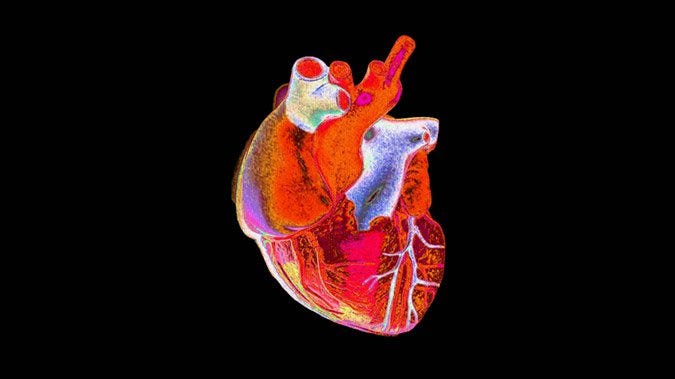

#3 We’ve entered the era of Sci-Fi medicine with knives that “smell” cancer and 3-D printed organs. —Wired Magazine
#4 I’ve never been a sporty person… but now I’m a die-hard Nuggets basketball fan. So, this profile of our hometown Serbian hero, Nikola Jokić, fascinated me. —The New Yorker
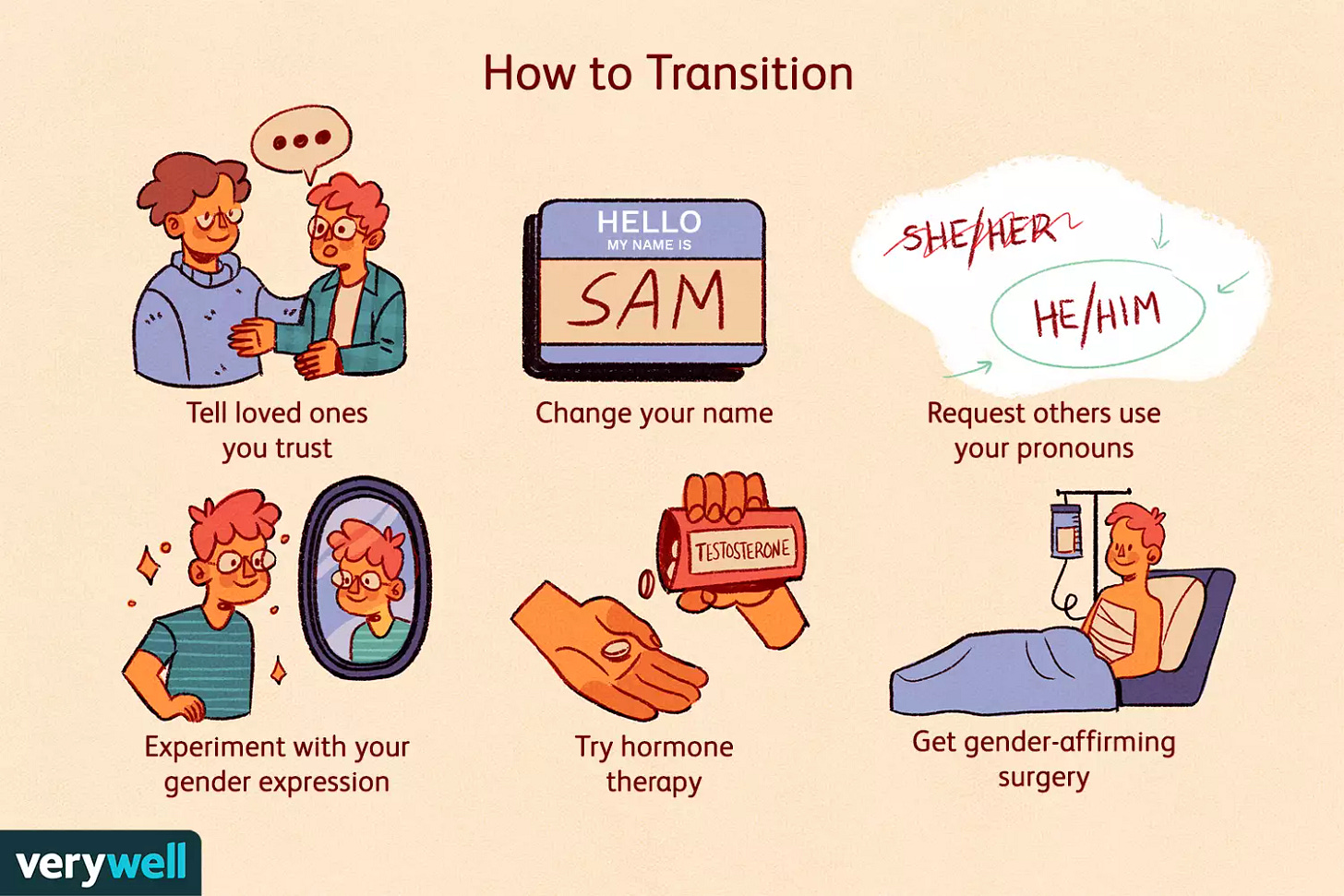
#5 How many trans teenagers actually regret transitioning? The data is hard to parse. —Slate
An Early Spring?
Punxsutawney Phil didn’t see his shadow so the people of Pennsylvania tell me that spring will come early this year. I’m holding you to that, Phil!
Kirkus Reviews called No Graven Image “an unusual first novel,” and “a curiously sombre and moving book,” while Christianity Today strangely expressed doubt about the author’s own faith in God, concluding that she’d put the “right” religious truths in her protagonist’s mouth at the end of her novel, but that whether she believed what she’d written was up for debate. In other words, Christians have never known how to read fiction… (Remember The Shack controversy?)


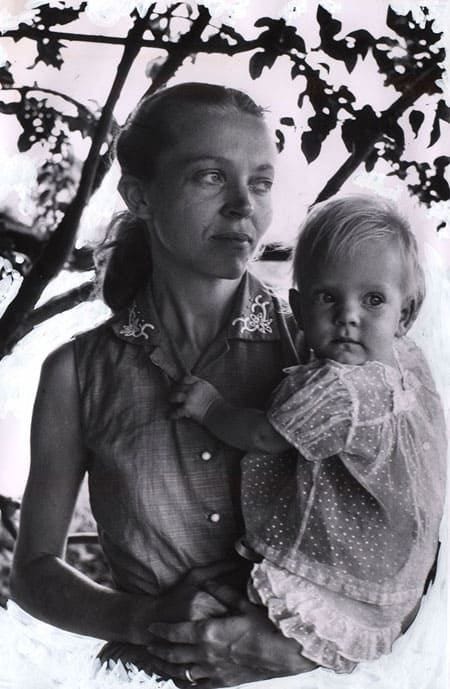
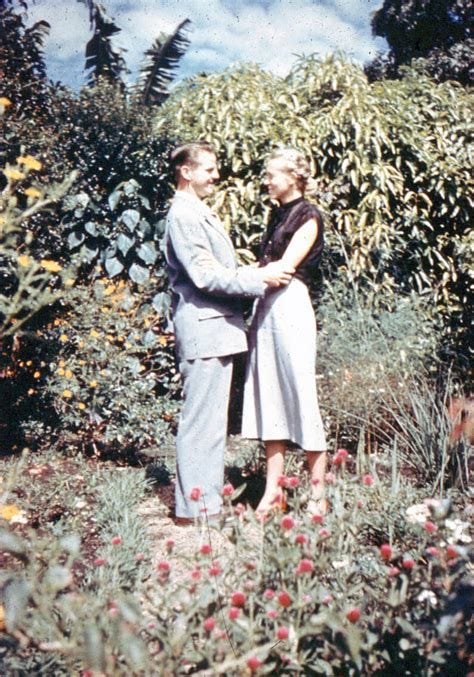
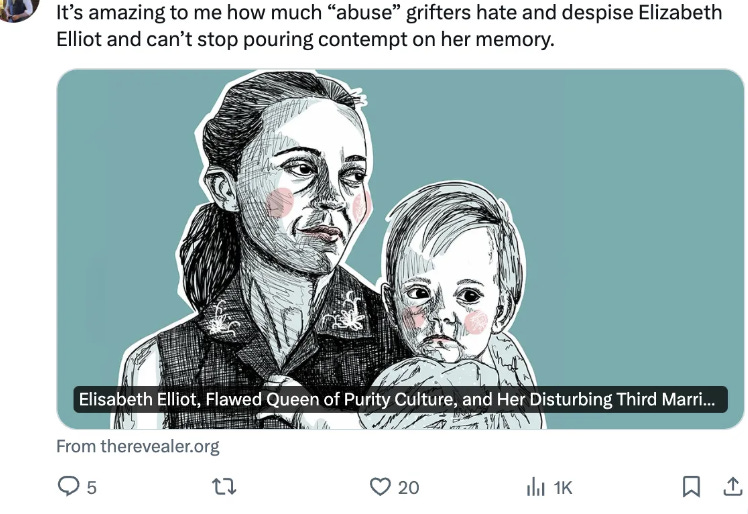

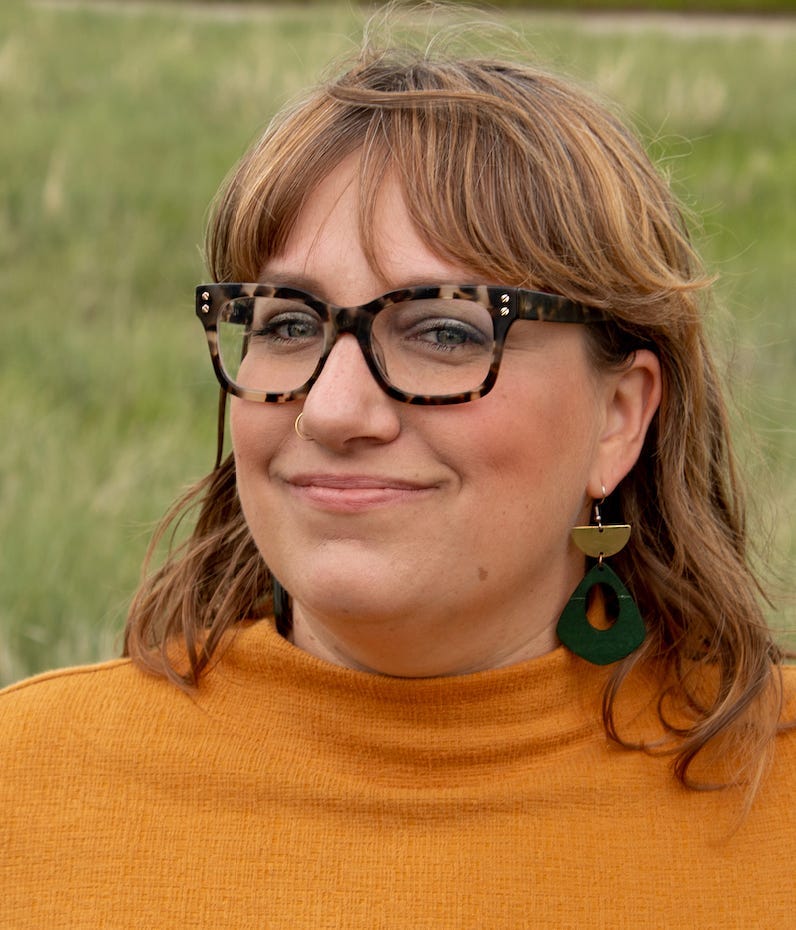
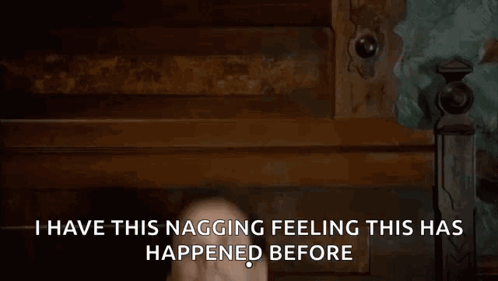
Good points again, and thanks again for getting the conversation started. And touché on the meek inheriting the earth!! I was thinking about it specifically in terms of "easily imposed on" fr the dictionary definition, but you're absolutely right that she was aspiring to Sermon on the Mt. meekness.
I’m really interested in reading No Graven Image. As an MK, any account that brings into doubt what we were doing to people by forcing our religion on them is highly fascinating.